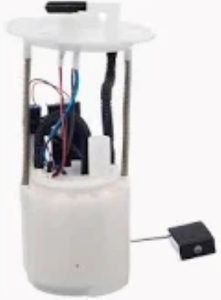It can also operate continuously assuming the engine is on, but its lifespan and performance are dependent on factors like amount of fuel inside, ambient temperature, and the car's condition in general. All fuel pumps are designed to operate up to around 10,000 hours of operation, roughly around 100,000 to 150,000 miles on the average driver. Apart from this, the maintenance is highly important in the long-run trucks or high-performance automobiles, because their operation often requires the running of the pump throughout for a long period of time at full capacity. The performance pumps are made for heavy-duty applications and may last longer due to enhanced materials and better cooling mechanisms.
Temperature is another factor that influences the fuel pump's life span. Since fuel acts as a coolant, then it is always advisable to keep the tank at least a quarter full in order to reduce overheating, especially in tropical climates. Running the fuel tank almost on empty provides the pump with less liquid to lower the temperatures and, therefore, might overheat. According to scientific research, vehicles that continuously operate on low fuel levels tend to have up to 20% shorter lifespan for fuel pumps due to the increased thermal stress. Industry leader Bosch recommends that operators maintain a minimum quarter tank of fuel in the tank for proper pump operation. This becomes even more critical when operating in high-demand applications or when the operator is driving the vehicle in a warm environment, both factors increasing the possibility of overheating the pump.

Other factors affecting continuous operation include contaminants in the fuel. A clogged fuel filter makes the pump work harder to achieve the required pressure, therefore increasing wear over time. Most manufacturers recommend replacing fuel filters every 30,000 to 50,000 miles to maintain efficient fuel flow and reduce pump stress. According to automotive expert Scotty Kilmer, "A well-maintained fuel system, including clean filters and adequate fuel levels, allows the pump to run smoothly, extending its life."
The quality and life-span vary depending on the kind of pump, as costly fuel pumps are built for endurance, particularly in high-performance engines. In fact, the highest quality Fuel Pump suitable for prolonged duration of intense work can endure the relentless wear and tear, especially those designed for high-performance or commercial-type motors. However, continuous high load decreases its longevity, hence preventive care and monitoring should be performed.
If keeping the fuel pump in good condition is somebody's priority, then regular servicing and being cautious while refueling a vehicle will be two very important factors to consider. Keeping away from running low on fuel, changing filters on time, and picking up a powerful model fuel pump will help in standing up to continuous performance with good performance of the pump, allowing continuous flow of fuel for a long time.